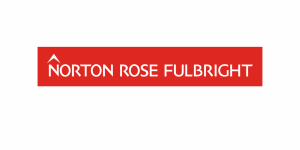- Why is this Communication being proposed now?
Over the ten past years, the EU and Africa had already forged a more political partnership based on shared values and interests, enshrined in the Joint Africa-EU Strategy adopted in 2007.
A series of events in 2017 – from the G7 and G20 Summits in May and June respectively to the 5th Africa-EU Summit on 28-29th November – have placed Africa high on the international agenda.
The 5th Africa EU Summit provides a critical opportunity for African and European leaders to reshape and deepen their relationship in response to the evolving context.
In a rapidly changing global landscape, Africa is experiencing profound economic, political and societal changes, and its importance to Europe's security and prosperity – both internally and externally - is becoming ever more obvious.
Africa has seen impressive economic growth over the last two decades and an increasing number of African governments and regional organisations are taking a leading role in addressing the security, political and poverty reduction challenges within their borders and beyond.
Yet both European and African citizens are witnessing a more uncertain global order, increasing incidence of disasters and crisis, insecurity and the rise of terrorism, and the increased movements of people.
Against this background, the Communication comes at the right time to reflect on how Africa and the EU should take their relationship forward. This will be guided in particular by the Global Strategy for the EU's Foreign and Security Policy, the UN's 2030 Agenda and Africa's Agenda 2063, allowing sufficient time to engage with EU Member States and African partners in view of establishing joint priorities and actions for the Summit and beyond.
- Why should Africa and the EU step up their engagement?
Europe is Africa's closest neighbour and main partner in foreign investments, trade, security, remittances and development and humanitarian assistance. What happens in Africa matters in Europe and vice versa.
In a more complex, more contested and more connected world as we see it today, this is more valid than ever. It is in Africa's and Europe's mutual interest to step up their engagement to face together the challenges and reap the benefits of the profound changes in Africa, in Europe and at global level.
Europe and Africa have much to gain from increased political and economic ties, but also a lot to lose if they fail to act.
- How does the EU plan to strengthen political dialogue and cooperation with Africa?
A stronger political engagement with Africa shall serve first of all to deliver on the EU's ambitious strategic priorities with Africa.
In particular, it will allow for closer cooperation on global governance issues and support for developing agreements, norms and actions in response to global challenges such as terrorism and transnational crime, climate change, epidemics, pressure on natural resources, humanitarian crises, irregular migration.
The African Union (AU) and the African group in the UN are strategic partners and key allies to strengthen the role of the UN and the rule-based global order which is essential for future peace and prosperity.
Additionally, the EU aims to increase cooperation with Africa on interregional level based on frequent political interaction, using all existing cooperation frameworks. Political dialogue also needs to include other stakeholders. The EU strives to strengthen engagement and contacts with local authorities, the private sector and civil society.
- Why is Youth the focus of the Africa-EU partnership in 2017?
The demographic dynamics on both continents combined with the challenges facing Africa put youth at the hearth of the relations between Africa and the European Union.
Africa is experiencing a growing youth population with 60% people across the continent under 30 years of age. Meanwhile, the population in the European Union is decreasing and aging. Economic progress in Africa has not been inclusive or sustainable enough to offer better prospects for a large part of the population, especially young people. In its cooperation with Africa, the European Union puts great emphasis on empowering and supporting youth. It does so by focusing both on economic inclusion through the generation of more and better jobs for young people as well as on democratic and political inclusion through fostering active participation in the decision-making bodies and political processes. The European Union also focuses on ensuring better intra-African youth mobility as well as equal access for all to quality education, including vocational education and training.
For example, the Commission proposes to launch an African Youth Facility, which will expand the scope of Erasmus+, or to support digital innovation in Africa. The Commission also presented its Digital4Development approach, outlining ideas on how to promote information and communication technologies in developing countries and mainstream digitalisation into EU development policy.
- How does the EU support peace and stability in Africa?
The EU is a strong supporter of the African Union and the African sub-regions to pursue the objective of "African solutions to African problems".
Currently, the EU funds 8 Common Security and Defence Policy (CSDP) civilian and military missions and operations across Africa in Somalia, Mali, Niger, Libya and the Central African Republic. The missions and operation aim at supporting partner countries, through for example training and capacity building in a number of fields, from rule of law to fighting terrorism and organised crime.
The EU is one of the main financial contributors to the African Union Mission to Somalia (AMISOM) having committed more than €1.3 billion between March 2007 and March 2017.
The EU has also been actively supporting the African Peace and Security Architecture (APSA) with more than €150 million since 2004.
In the future, the EU aims to further intensify the cooperation with its African partners in all stages of conflict. This means strengthening coordination and dialogue to increase conflict resilience, to enhance conflict prevention capabilities by supporting the full operationalisation of the APSA and African capacity building as well as assisting the African Union, sub-regional organisations and countries in improving conflict management and peacebuilding efforts.
- How can the EU contribute to strengthening democracy and good governance in Africa?
The EU is Africa's main partner in governance, democracy, rule of law and human rights.
The EU provides substantial support to the implementation of African governance commitments on national, regional and continental level, including efforts to strengthen local authorities and civil society participation. Notably, this includes the operationalisation of the African Governance Architecture as a holistic, Africa-owned framework for coordination and democracy-building.
The EU engages with its African partners in a number of human rights dialogues on bilateral and interregional level, including the annually held EU-AU Human Rights Dialogue. The EU also supports African countries in ensuring peaceful electoral processes: it regularly deploys Election Observation Missions and in this works closely with the African Union and Regional Economic Communities.
The EU will continue to support democratic consolidation, human rights and the rule of law through enhanced cooperation and dialogue, while advocating for the ratification and implementation of international and continental instruments. As good governance is essential for stable democracies, it will promote accountability, transparency and responsiveness of institutions on all levels, including efficient public finance management, empowerment and participation of all groups of society and strengthened resilience to humanitarian crises and environmental degradation.
- What is the EU doing to boost investment and job creation in Africa?
Job creation and sustainable and inclusive development in Africa are among the EU's main strategic objectives. To this end, it supports Africa in attracting responsible and sustainable investments in value-adding and labour intensive sectors. Specific emphasis will be on the private sector, as it holds the largest potential for generating jobs.
The main tool will be the proposed European External Investment Plan, which focuses on leveraging additional private and public resources for investment, enabling it to mobilise up to €44 billion. Under its three integrated pillars, it will provide finance and guarantees for investments, technical support to local authorities and companies and strive to improve the investment climate through systemic reforms and good governance. Additionally, the EU will work to facilitate intra-African trade as well as European-African business relations by establishing private sector dialogues, using the stable framework of the Economic Partnership Agreements and promote preparations for an African Continental Free Trade Area.
- What are the key sectors the EU aims to target in Africa?
The EU has identified agriculture and energy as key sectors to generate inclusive development in both rural and urban areas.
They provide abundant opportunities to create sustainable and adequate jobs, notably in view of climate change related challenges and adaptions. The EU supports Africa in meeting the energy demand of its growing economies by spurring public and private investment in renewable energy on all levels and cross-border. Both EU and Africa are set to benefit from deepened strategic alliances and collaboration between public and private stakeholders, notably local authorities, researchers and innovators. Agriculture is a vital source of income for many Africans, while at the same time the sector's full potential – in terms of climate resilience, food security, job creation and empowerment – remains underdeveloped. The EU as one of Africa's main partners for agriculture and blue economy development intends to support the development of responsible value chains, guided by a strong regulatory and policy framework that ensures the sustainable management of precious resources.
At the same time, it aims to foster skills, innovation and collaborative research to strengthen resilience and reduce the sector's vulnerability, while promoting entrepreneurship and productivity.
- How does the EU cooperate with Africa on migration?
Both Africa and the EU have a shared interest to effectively and responsibly manage migration and mobility in view of its repercussions on economic, security and social factors. Africa and Europe therefore take on their shared responsibility, calling also for global solutions and international regulatory frameworks.
Migration first takes place inside Africa, with around 50% of African migration happening within the continent, between African countries [1]. The Communication proposes to further support Africa to address this situation, which can raise both opportunities and challenges. Intra-African migration is driven largely by a search for job opportunities in neighbouring countries and by waves of internal and cross-border conflicts. Half of the top-10 refugee hosting countries are now located in sub-Saharan Africa, namely Ethiopia, Kenya, Uganda, Chad and Sudan.
At the same time, increasing numbers of migrants and asylum seekers are arriving in Europe from Africa. Both continents have recognised that more needs to be done in particular to prevent hazardous journeys, reduce deaths on the route, address the root causes of migration and step up practical cooperation.
On Africa-EU level, several instruments are already in place. The EU and Africa developed a number of dialogues related to migration issues such as the Africa-EU Migration and Mobility Dialogue, the Khartoum and Rabat processes with key countries and the Migration Partnership Framework. The Partnership Framework provides an umbrella for practical cooperation between the EU and third countries, taking into account all tools and policies at the EU's disposal, always fully in line with human rights obligations.
The EU also set up the Emergency Trust Fund for Africa as an important tool to deliver on the commitments made in the context of the Valletta Summit on Migration, and in the implementation of the Partnership Framework approach. Worth over €2.6 billion, the Trust Fund encompasses three windows, covering the Sahel region and Lake Chad, the Horn of Africa and North Africa. It addresses root causes of instability, forced displacement and irregular migration, as well as trafficking in human beings. The bulk of its resources are dedicated to supporting job creation and economic development, especially for young people and women in local communities, resilience, migration management, as well as stability and governance. A total of 112 programmes, worth over €1.7 billion were approved already under the three regional windows, and around €700 million have been contracted.
While migration is a transnational challenge, it also contains enormous potential as a driver for sustainable development in regard to diaspora engagement, remittances and knowledge transfer. This does not only concern migration movements between Africa and Europe, but equally and on a larger scale intra-African mobility.
- How much development and humanitarian aid does the EU provide in Africa?
The EU is the world's largest donor, giving more than half of Official Development Assistance (ODA) worldwide. The EU's collective ODA amounted to €75.5 billion in 2016, with over €20 billion of ODA to Africa every year. The European Commission's total official development aid to Africa will amount to €31 billion between 2014 and 2020.
Furthermore, the EU, together with its Member states, is Africa's leading donor of emergency humanitarian aid with the Commission itself committing more than €800 million annually since 2015.
- How important are remittances and foreign direct investment between the EU and Africa?
The EU is collectively Africa's main foreign investor and main source of remittances. In 2015, both the foreign direct investment flow, amounting to €32.2 billion, as well as the remittances flow from Europe to Africa, amounting to €21.1 billion, were at least on par with the total official development assistance of EU institutions and Member States.
[1] According to the UN Department of Economic and Social Affairs statistics (2nd May 2017).
(Source: European Commission)





















